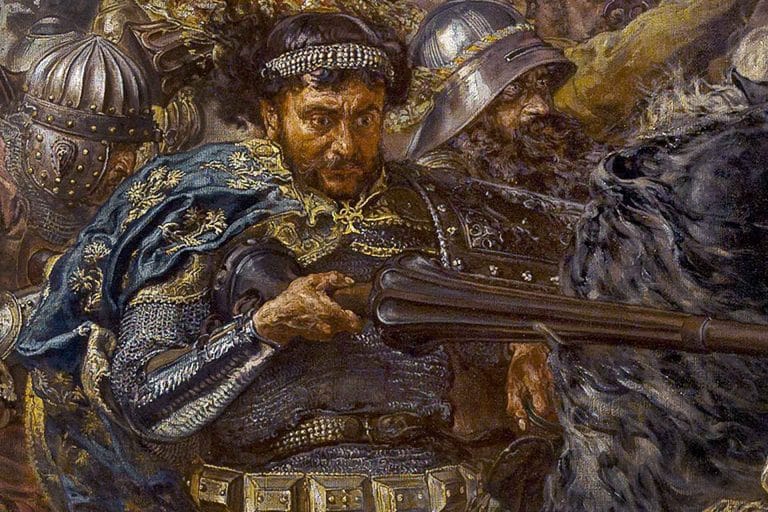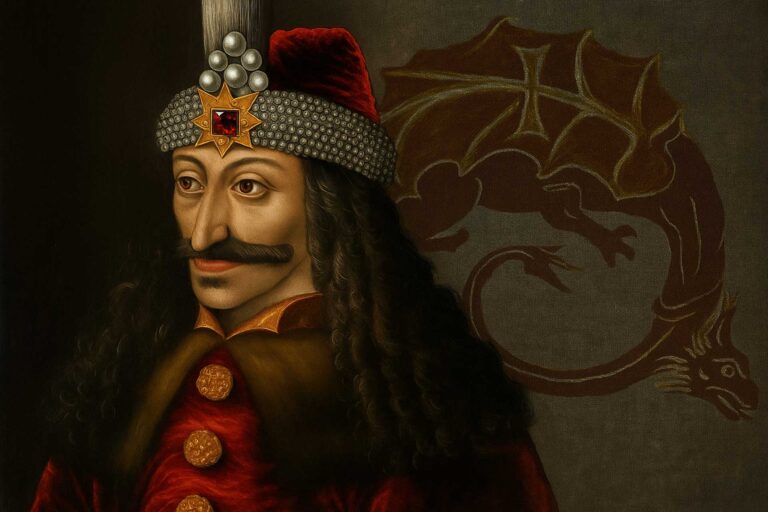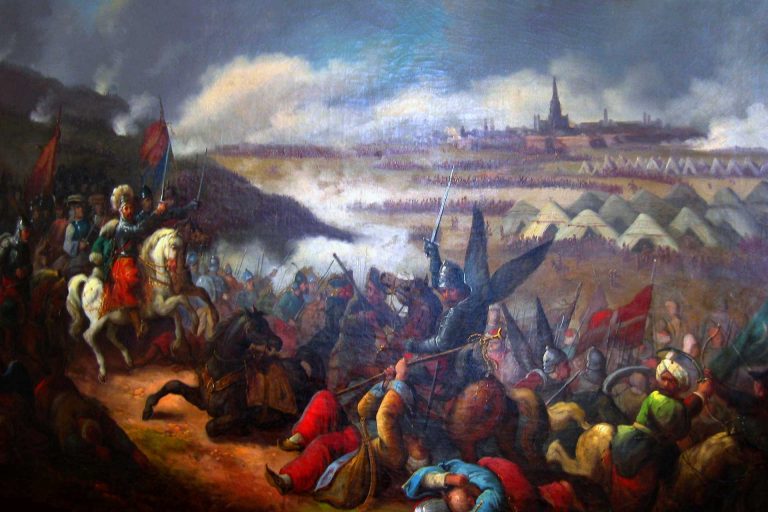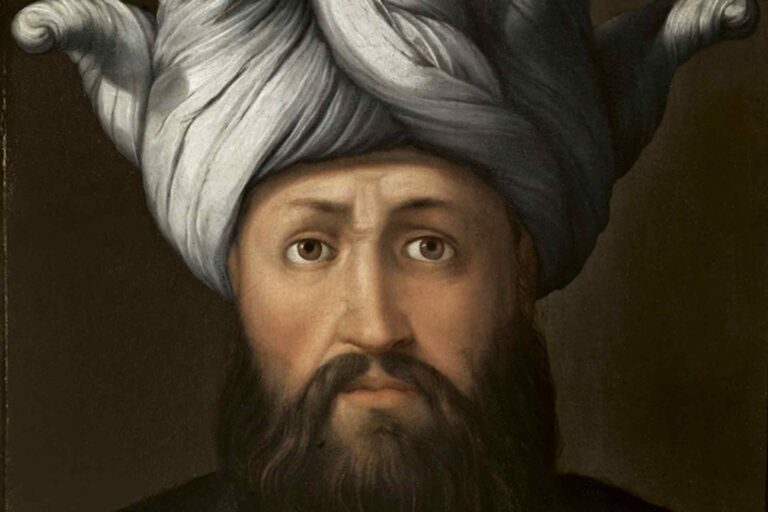How John Hunyadi Became Europe’s Shield Against the Ottomans
John Hunyadi was the bulwark of Europe in the 15th century when the Ottoman Empire expanded continuously into the heart of the continent, following the stunning conquest of Constantinople in 1453. As Hungary sat on the route of the empire’s invasion, its castles served as the last line of defense between the Ottomans and Central Europe. As raids, sieges, and military campaigns menaced Christendom, there was a demand for strong leadership and courage. A man who would rise to meet the challenge was Hunyadi, a soldier who dedicated his life to fighting the ever-expanding power of the sultans.
A Wallachian and Hungarian aristocrat, he went from knight to regent of Hungary and became renowned as one of the best generals of his time. His triumphs at Varna and, especially, Belgrade in 1456 made him the “Shield of Christendom”. With his military and political acumen and indomitable bravery, John Hunyadi saved Hungary and kept the eastern frontier of Europe safe, forever imprinting his place in history as the man who stopped the Ottomans at their zenith.
Early Life and Rise to Power of John Hunyadi
John Hunyadi’s ascent to prominence began in the early 15th century. Born into a family of Wallachian and Hungarian descent around 1406, Hunyadi’s origins were not of the highest nobility, but his family enjoyed royal patronage and opportunities. His mixed ancestry provided him with unique connections across Central and Eastern Europe. His early life on the borderlands of the Kingdom of Hungary was crucial in understanding his approach to leadership. It was a region where the pressures of the Ottoman Empire were most directly felt, and where the defense of Christendom was a palpable and immediate concern.
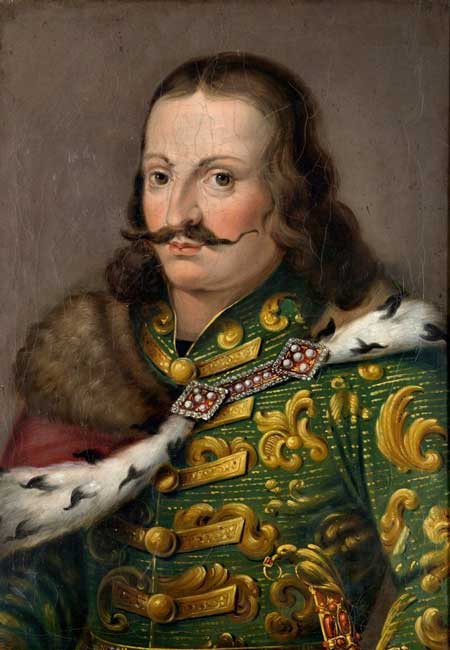
John Hunyadi came into royal service under King Sigismund of Luxembourg, who saw promise in the young knight. He served in various European campaigns alongside Sigismund, gaining exposure to diverse military strategies and political alliances. These formative experiences widened his strategic and diplomatic horizons. Chronicles of the time suggest that Hunyadi’s bravery and prowess in battle won the king’s favor. By the 1430s, he was already a notable commander with a significant presence in the royal court.
The looming Ottoman threat presented Hunyadi with more opportunities for distinction. In the border conflicts and raids, he showed both tactical brilliance and tireless energy, often at the helm of relatively small but highly effective forces. His ability to inflict damage on Ottoman raiding parties set him apart from his peers, and he became known as one of the most dependable guardians of Hungary’s borders. Hunyadi’s career trajectory was swift, and by the early 1440s, he had become one of the most renowned military leaders in the kingdom.
In 1441, Hunyadi was appointed Voivode of Transylvania, putting him at the center of the kingdom’s frontier defense. It was from this base that he organized military operations that penetrated deep into Ottoman territory, achieving successes that pushed back the empire and furthered his reputation as a champion of Christendom. These victories not only enhanced his standing within Hungary but also made him a figure of international repute, admired by those across Europe who feared Ottoman expansion.
The Long Campaign and the Varna Crusade
n 1443, John Hunyadi led the “Long Campaign,” one of the first major coordinated offensives against the Ottoman Empire. Supported by King Władysław III of Poland and Hungary, he advanced deep into Ottoman territory in the Balkans. The campaign initially saw success as Hunyadi’s forces achieved several victories, capitalizing on the winter conditions that slowed down the larger Ottoman armies. His bold approach reinvigorated the Christian states, demonstrating that the Ottomans could be contested on their own soil.
However, the campaign ultimately failed as the winter, long supply lines, and the Ottomans’ superior manpower forced the crusading army to retreat. Despite this, the expedition rekindled hope in Europe and paved the way for Pope Eugenius IV to call for another crusade. Hunyadi’s leadership during these operations solidified his reputation as one of Europe’s finest commanders, unafraid of taking risks when others hesitated. His victories, albeit temporary, showed that resistance against the Ottomans was possible.
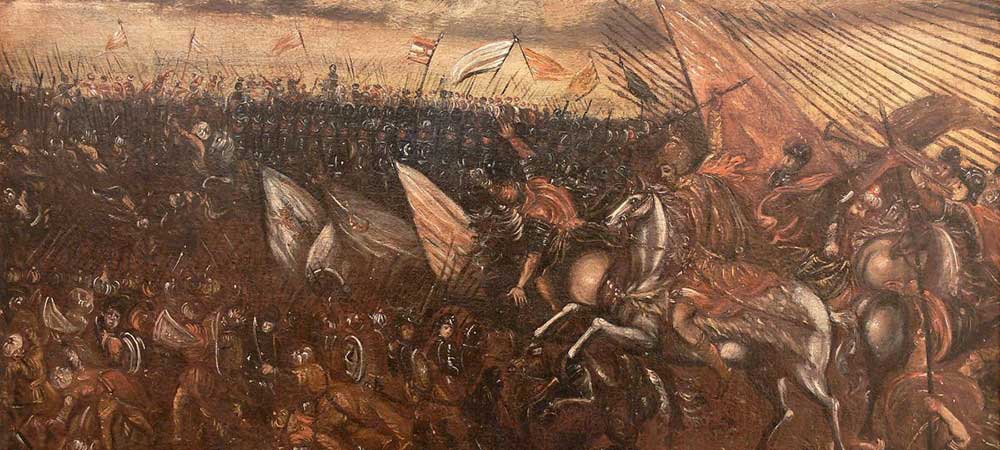
In 1444, the Christian forces regrouped for the Varna Crusade. Led by King Władysław III and advised by Hunyadi, the army advanced towards the Black Sea, aiming to deliver a decisive blow against the Ottomans. However, at the Battle of Varna, the crusaders were decisively defeated. Sultan Murad II’s forces outnumbered and outmaneuvered them, and despite a desperate resistance, the tide of the battle turned against the Christians. King Władysław was killed in the fighting, and the crusade was thrown into chaos.
The loss at Varna was a disaster for the Christian world, but Hunyadi’s personal reputation only grew. Chroniclers of the time praised his ability and courage, and he was widely credited with saving large parts of the army from total destruction. More importantly, he was still one of the few European leaders who was willing to take the fight to the Ottomans in their own land. In the eyes of many contemporaries, he had become the living embodiment of resistance against the seemingly insurmountable.
The Long Campaign and the Varna Crusade illustrated both the potential and the limitations of European unity against the Ottoman Empire. Temporary successes demonstrated what determined leadership could achieve, but the disaster at Varna also showed how difficult it was to sustain such efforts. For Hunyadi, these experiences further cemented his role as Europe’s foremost general in the east and prepared him for the even greater challenges that would come with Belgrade.
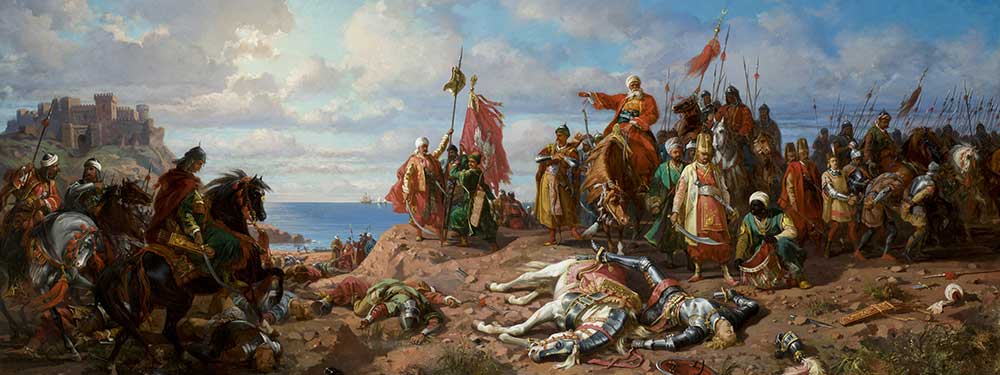
The Growing Ottoman Threat
The capture of Constantinople in 1453 was a major shock to all of Europe. Sultan Mehmed II of the Ottoman Empire had not only brought an empire that had lasted for over a millennium to an end, but he also had the strongest geographical position of any city in the world. Sitting on the border between Europe and Asia, the Ottomans could now direct their full attention and military might against the West. As the gateway between the two continents was firmly in their grasp, Ottoman armies began to advance north and west into Central Europe.
Hungary, on the border of Christendom, was the most obvious destination for raids and campaigns in the coming years. Even before 1453, Ottoman forces would regularly raid the borderlands such as Transylvania or the southern Hungarian plains, burning villages and carrying off the population as captives. The newly-conquered Balkans were carved up into independent states that were increasingly incorporated into the Ottoman sphere of influence, with Serbia and Bulgaria soon becoming Ottoman vassal or subject states. For Hungary, this meant being left practically alone at the first line of defense in the face of a conquering army.
John Hunyadi knew that if Hungary was lost, then the road to Vienna and the West lay open. It was because of this that he saw the defense of his country as the defense of Europe as a whole. In the Hungarian popular narrative, he was seen as a champion who “fought not for one kingdom alone but for all of Europe”. This was the mentality he had and how he would lead his campaigns against the Ottomans.
He also knew that Hungary would not be able to face the Ottoman juggernaut alone. Hunyadi therefore strove to unite the efforts of all the Christian kingdoms in a common crusade against the infidel Turks. He lobbied at the highest level in Rome for such a movement to come about and called for all of Christendom to unite against the Ottoman threat. To his credit, his calls did have an effect, and there was a general atmosphere of cooperation between the Christian powers in the face of the Ottomans. However, old rivalries and mistrust resurfaced constantly. Hungary, and Hunyadi, often found themselves on their own. It was this, more than anything, that shaped John Hunyadi’s career in the coming years.
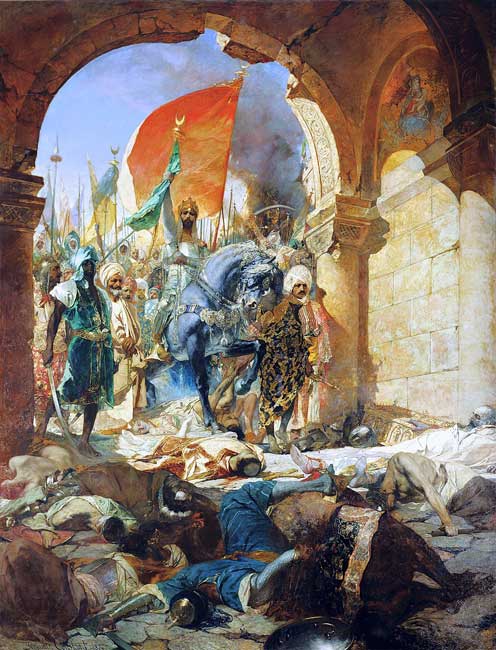
By the mid-15th century, the Ottoman threat had changed from a nuisance to an existential crisis for the entirety of Europe. Hungary and John Hunyadi would be on the front lines of this struggle. His understanding of the nature of the threat and his efforts to create an effective opposition against the Ottomans would set the tone for his greatest campaigns in the years to come.
The Siege of Belgrade (1456)
In the years following the conquest of Constantinople in 1453, Sultan Mehmed II set his sights on Central Europe. The main target was Belgrade, a heavily fortified city on the Danube River, which was the gateway into Hungary and the countries beyond. With Belgrade in Ottoman hands, the empire would have a direct line to the center of Europe. In the spring of 1456 Mehmed assembled a vast army, which contemporary estimates put at over 60,000 men. The city of Belgrade now became the center of Europe’s resistance, and John Hunyadi was once again placed in charge of Hungary’s defense.
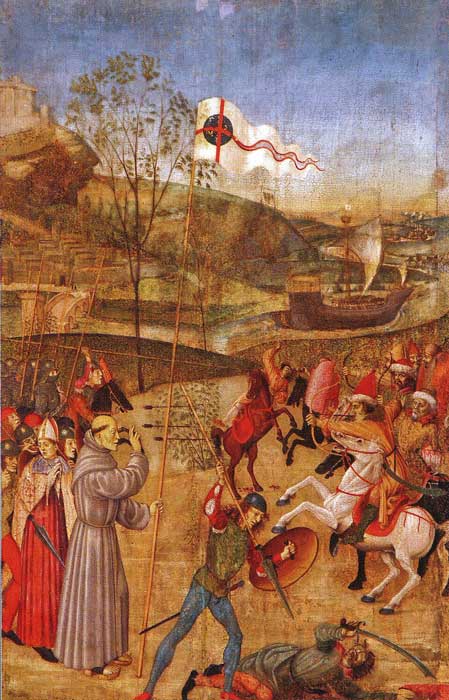
Hunyadi left nothing to chance in the months leading up to the siege. He ordered Belgrade’s fortifications to be strengthened and amassed large quantities of food and ammunition in preparation for a lengthy siege. He also coordinated closely with the leader of a crusade sent by the Pope, a Franciscan friar named Giovanni da Capistrano, who was preaching holy war against the Ottomans.
Hunyadi and Capistrano prepared to resist the siege not just with professional soldiers, but also with peasants, townsmen, and volunteers from all across Europe, who answered the friar’s call to take up arms for their faith. Contemporaneous chronicles have mentioned thousands of such volunteers, and the resulting defense of Belgrade would not only be a military but also a spiritual stand for all Christendom.
As Mehmed’s siege tower and artillery began pounding the city’s walls with cannon fire, one of the greatest in Europe since the Fall of Constantinople, Hunyadi and Capistrano made sure their troops were ready for a long siege. Both leaders also paid particular attention to naval activity on the Danube. A few weeks into the siege, Ottoman ships attempting to blockade the city were attacked and defeated by Hungarian war galleys, which also managed to break through and deliver supplies to the beleaguered city.
The Great Siege of Belgrade of 1456 came to a head in July, when, after weeks of incessant bombardment and digging of tunnels under the walls, Mehmed’s forces finally made a direct assault on the city’s ramparts. Hunyadi and Capistrano led a last-minute sortie, in which their troops, pouring out of the city, managed to drive back the Ottoman forces in desperate close-quarters combat. The sultan himself was even wounded during the battle. By the end of the day, the Ottomans were in full retreat, and the Hungarian forces had turned the tide. Mehmed’s dream of an unbroken road to Central Europe was over. For Europe, the news was nothing short of miraculous.
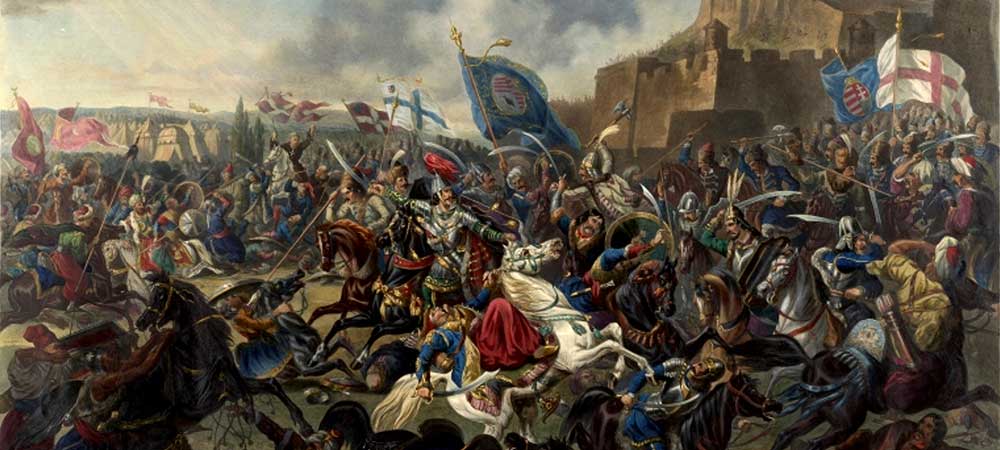
The victory at Belgrade was quickly hailed as such across Europe, with Pope Callixtus III ordering church bells in every town and city to ring daily at noon for years as a gesture of thanks, a tradition that has remained to this day. For many, Belgrade’s successful defense was not just a strategic but also a spiritual victory, which had saved not only Hungary but all of Europe for the time being. John Hunyadi, the man who had led the defense, would be remembered for the rest of history as the Shield of Christendom, who had personally taken up arms and at the most critical of times had saved the gateway to Europe from Ottoman conquest.
Legacy and Transformation
The joy of victory, however, was short-lived. A mere two weeks after the fall of Belgrade, Hunyadi succumbed to the plague, which had raged through the camp. The news spread quickly and, as often happened during the Middle Ages, his death was mourned as if he had been a king. He left behind a legacy of military might, strategic acumen, and national pride, but also the unfinished business of a Hungary that needed strong leadership in a world on the brink of change.
His death was not just a personal tragedy; it was a strategic loss for Hungary and, indeed, for all of Christendom. Hunyadi was at the height of his powers and reputation, and his passing left a vacuum that would take years, if not decades, to fill. His son, Matthias Corvinus, would eventually ascend the Hungarian throne in 1458 and pursue a similar path of military and diplomatic action, but the loss of Hunyadi’s guidance was keenly felt. His death removed Europe’s most battle-hardened general at a critical juncture, leaving many to wonder how the struggle against the Ottomans would continue without his leadership.

The immediate and long-term consequences of the Siege of Belgrade in 1456 were significant, not only for the Hungarian kingdom but for the whole of Europe. In the short term, the defeat of the Ottomans at Belgrade prevented the empire from expanding further into Central Europe. This gave Hungary and its neighbors, like Poland and the Holy Roman Empire, more time to fortify their defenses and prepare for future Ottoman incursions.
Many historians argue that if the Ottomans had taken Belgrade, Vienna, and much of Central Europe might have fallen into their hands several decades earlier, potentially altering the balance of power in Europe dramatically. The victory at Belgrade also gave the Christian kingdoms of Europe a much-needed morale boost. The Ottoman advance into Europe had been seemingly unstoppable, and the news of their defeat would have been greeted with relief and celebration from Vienna to Rome.
The victory at Belgrade did more than provide a short-term respite from the Ottoman threat. It also had long-lasting effects on the way European powers approached the problem of the Ottoman Empire. The siege demonstrated that the Ottomans were not invincible and that a united front could successfully resist their advance. This realization led to increased diplomatic and military cooperation among the European states, which was further bolstered by the formation of the Holy League in 1495.
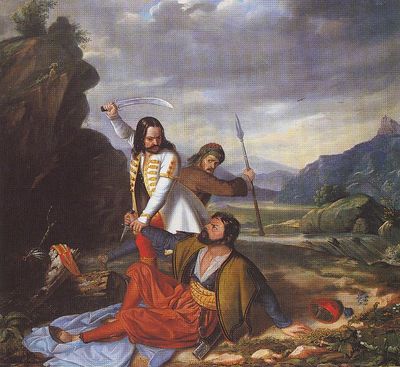
The siege also showed that the Ottomans’ much-feared Janissary corps was not invincible. The use of artillery by the defenders of Belgrade was a key factor in their victory, and this would inspire future generations of European commanders to develop their own artillery corps to counter the Ottoman Janissaries.
In Hungary, the memory of John Hunyadi and his victory at Belgrade lived on for generations. He was widely regarded as a national hero and a defender of Christianity. Hunyadi’s victory was celebrated in ballads, songs, and legends, and he became the subject of numerous works of art and literature.
Statues were erected in his honor, and his legacy was preserved through his descendants, particularly his son Matthias Corvinus, who would go on to build upon his father’s legacy. In Hungarian national memory, Hunyadi has remained a symbol of courage, leadership, and resistance against overwhelming odds. His legacy is one of resilience and determination, and his life and work continue to inspire Hungarians to this day.
John Hunyadi’s reputation and legacy endure, not just in Hungary but throughout Europe. To his contemporaries and to future generations, Hunyadi was seen as one of the greatest defenders of Christendom. Pope Pius II, who had met Hunyadi in person, described him as “one of the noblest soldiers of Christendom.” In Hungary, Hunyadi was immortalized as a national hero and a champion of the faith. His victory at Belgrade against the mighty Ottoman Empire became a symbol of hope and resistance for a Europe under threat. Hunyadi’s life and achievements are a testament to the enduring power of courage, faith, and strategic vision in the face of overwhelming odds.
Remembering a Medieval Legend
The valor and leadership of John Hunyadi occurred at a time when the fate of Europe was at stake. By stopping the Ottoman advance at Belgrade and galvanizing the Christian forces when all seemed lost, he not only saved Hungary but also preserved the heart of Europe. The chroniclers of the time rightly saw his stand as a miracle, a turning point that proved the Ottomans could be resisted. Without Hunyadi’s victories, Central Europe might have been conquered decades earlier, and its history would have taken a different course.
His legacy is not confined to Hungary alone; it resonates across the continent. Hunyadi is still remembered as the “Shield of Christendom”, not just a defender of his homeland but a guardian of European civilization. His story is a powerful reminder of how determination and vision can alter the fate of nations, leaving an imprint that outlasts even the mightiest of empires.



